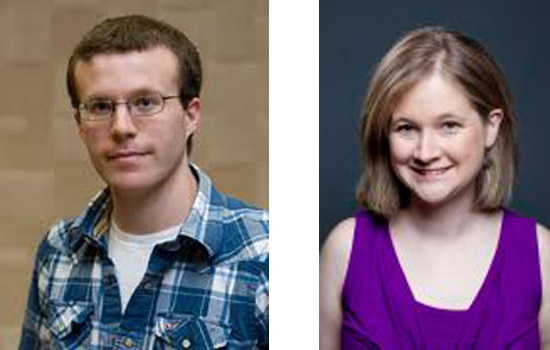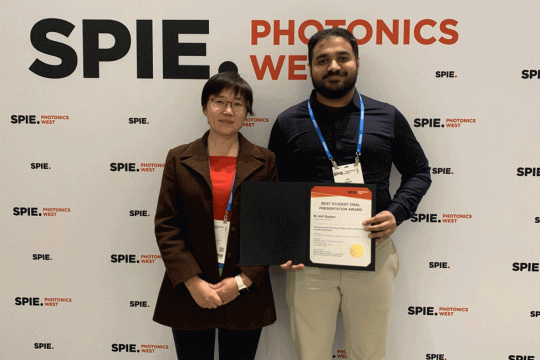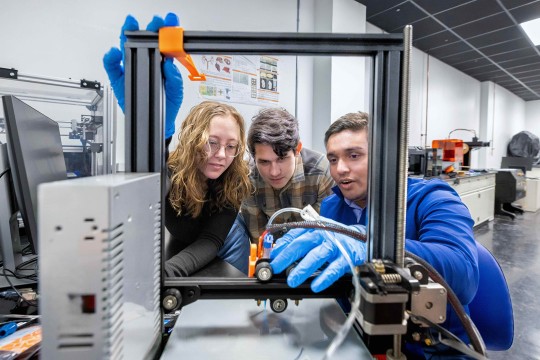Students awarded Graduate Research Fellowships
Ph.D. students recognized by National Science Foundation two years running
Philip Salvaggio and Erika Mesh
Two graduate students at Rochester Institute of Technology have been awarded Graduate Research Fellowships from the National Science Foundation for their research in the fields of science and engineering—an honor that, according to RIT graduate dean Hector Flores, is mathematically significant.
“Earning Graduate Research Fellowships from the National Science Foundation two years in a row is a significant accomplishment,” says Flores. “The national average for institutions being awarded these honors consecutively is about 15 percent. RIT’s rate of success is 40 percent, which is a testament to the excellence of our doctoral researchers-in-training.”
Erika Mesh, a doctoral student studying computing and information sciences in RIT’s B. Thomas Golisano College of Computing and Information Sciences, primarily researches software engineering process improvement for computational software engineering domains. Other research interests include program comprehension, software engineering knowledge management and artificial intelligence as it relates to automated reasoning and decision making for software engineering tasks.
Mesh, from Rochester, N.Y., earned her bachelor’s and master’s degrees in software engineering at RIT, is a graduate research assistant with RIT’s Laboratory for Environmental Computing and Decision Making, and is an active member of RIT’s Graduate Student Advisory Committee. She also presented the co-authored paper “Scientific Software Process Improvement Decisions: A Proposed Research Strategy” at the International Conference on Software Engineering.
“I am thrilled to have been awarded a fellowship and am very honored that the NSF reviewers believed in my vision for myself and the future of scientific software,” Mesh says. “It’s an amazing program with a real vision for advancing high-level research in this country.”
Philip Salvaggio, an imaging science graduate student in RIT’s Chester F. Carlson Center for Imaging Science, is going to be studying the computer modeling of complex and novel optical systems, such as sparse optical systems. His main research experiences as an undergraduate have been focused on remote sensing and image processing.
Salvaggio, also from Rochester, N.Y., earned his bachelor’s degrees in imaging science and computer science from RIT and is also a past recipient of the Abraham Anson Memorial Scholarship and the Central New York Student of the Year Award from the American Society for Photogrammetry and Remote Sensing; the Fitz Scholarship from RIT’s Chester F. Carlson Center for Imaging Science; and RIT’s Outstanding Undergraduate Scholar Award. He has spoken at national conferences and has co-written several publications related to remote sensing.
“Erika and Philip will undoubtedly use their talents to mentor future students while contributing to building and maintaining an already vibrant research community at RIT,” adds Flores.
According to the National Science Foundation, the Graduate Research Fellowship Program recognizes and supports outstanding graduate students in NSF-supported science, technology, engineering and mathematics disciplines who are pursuing research-based master’s and doctoral degrees at accredited United States institutions. Fellows benefit from a three-year annual stipend of $30,000 along with a $10,500 cost of education allowance for tuition and fees, opportunities for international research and professional development, and the freedom to conduct their own research at any accredited U.S. institution of graduate education they choose.
The graduate fellowship is the oldest of its kind and former recipients have included Nobel Prize winners, former U.S. Secretary of Energy Steven Chu and Google co-founder Sergey Brin.













